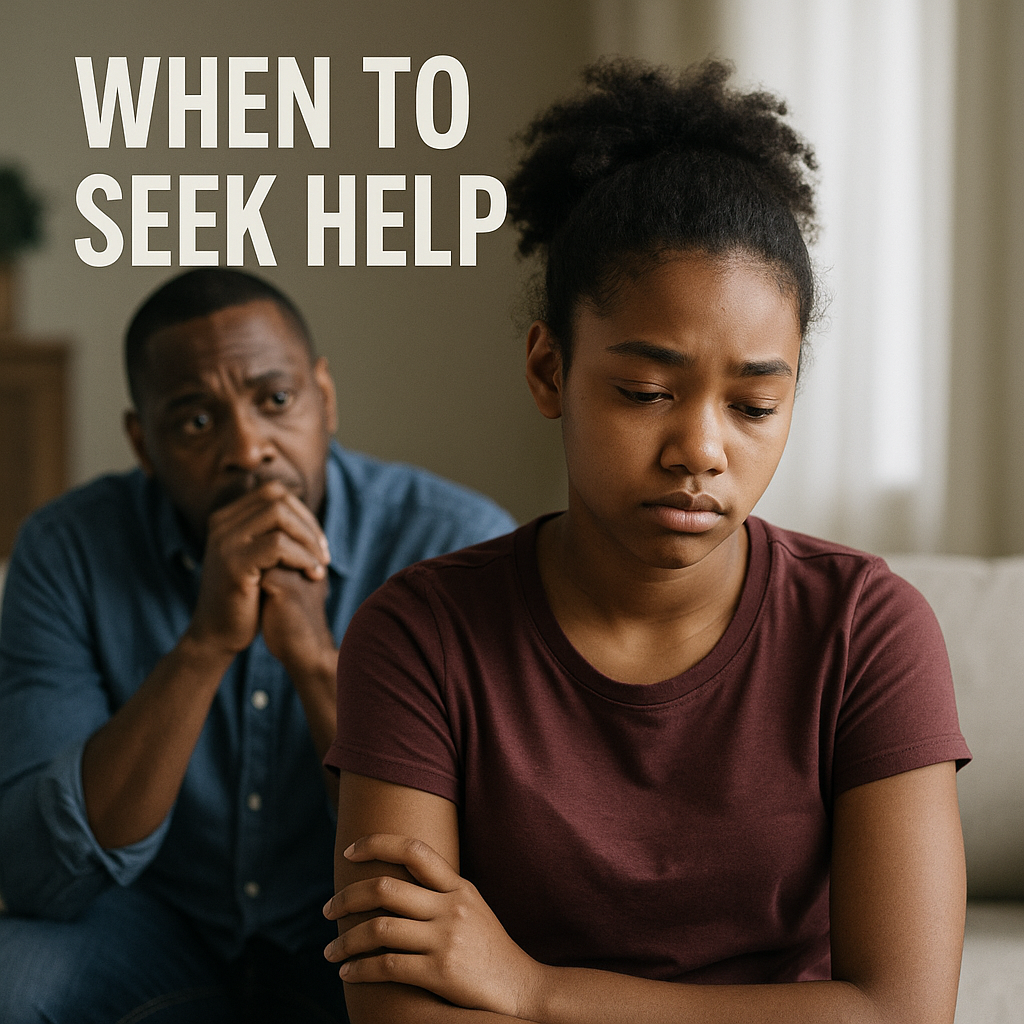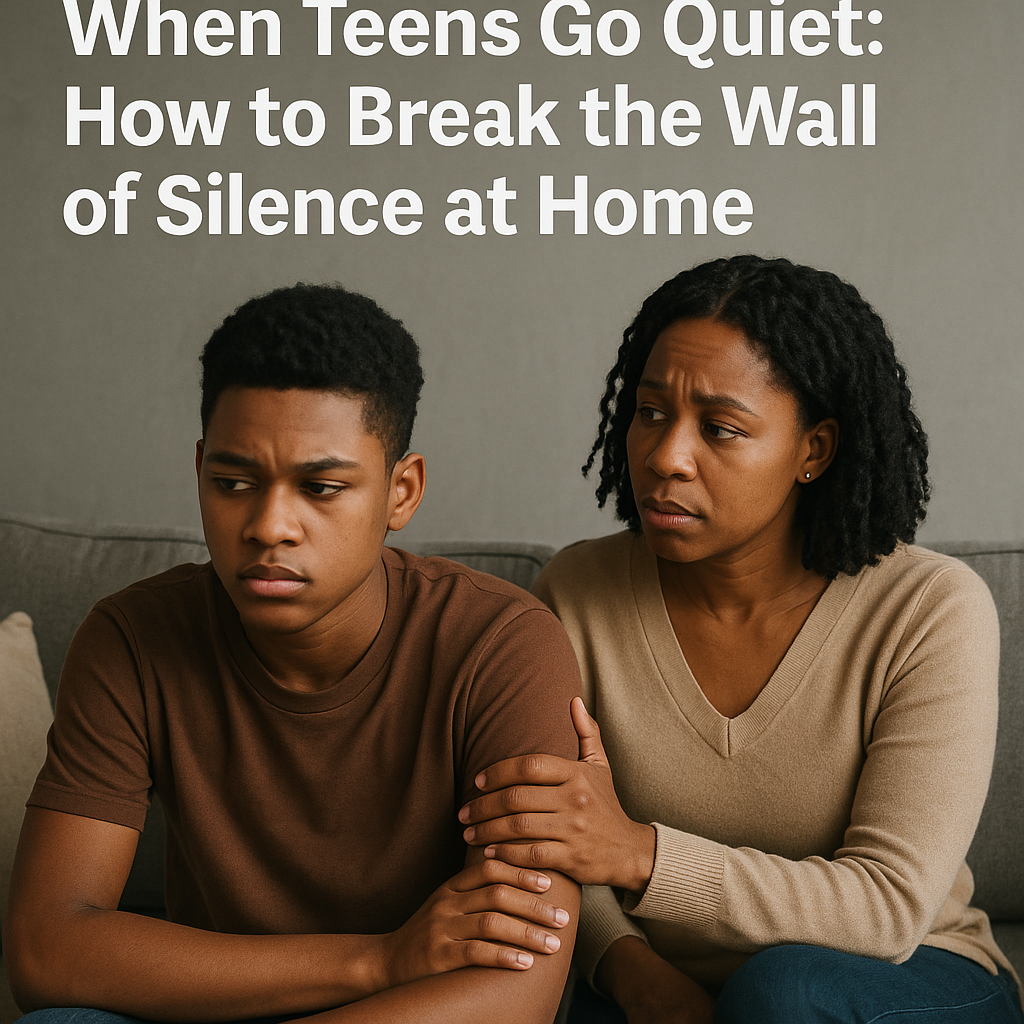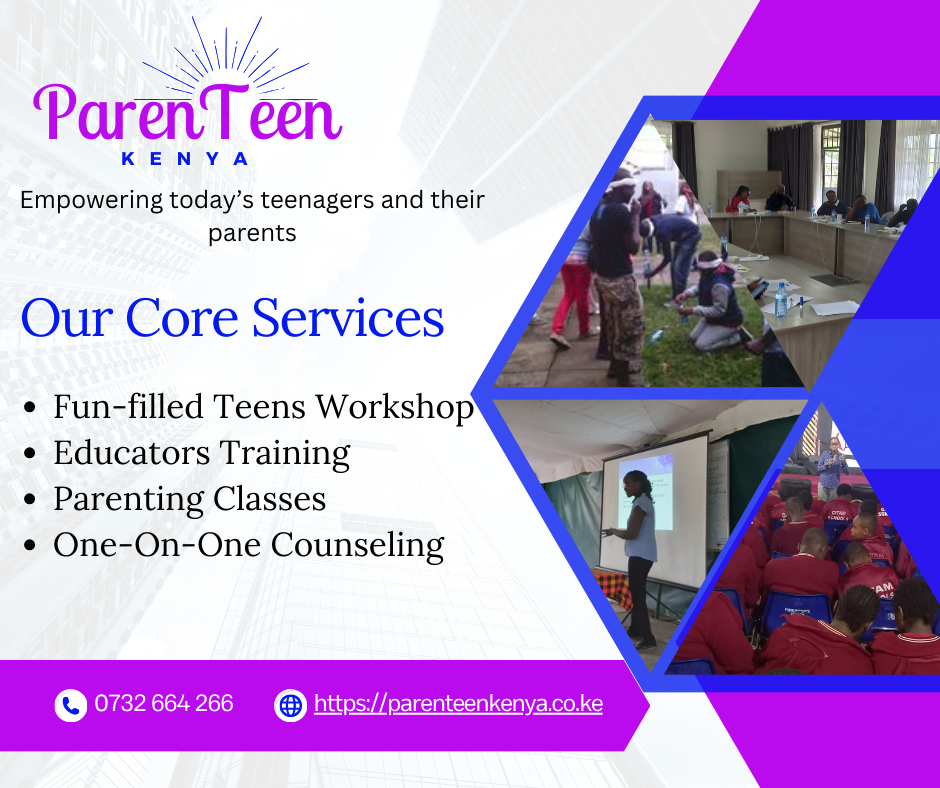One day, your teen is talking your ear off about school and friends, and the next, it’s like they’ve gone silent.
You might find yourself wondering, “Why won’t they talk to me anymore?”
The change can feel sudden and confusing; doors start closing, replies get shorter, and meaningful conversations seem to vanish.
It’s easy to feel shut out or worry that something’s wrong.
But you’re not alone, and this silence is more common than you might think.
Sometimes it’s just a normal part of growing up; other times, it’s a sign your teen needs support but doesn’t know how to ask for it.
In this article, we’ll explore why teens go quiet, what it means, and how you can start reconnecting.
What Your Teen’s Withdrawal Might Really Mean

When your teen suddenly becomes quiet, it’s natural to assume the worst. However, silence doesn’t always mean something is wrong.
Understanding the real reasons behind their withdrawal can help you respond with patience rather than panic.
Your teen might be pulling away for several normal developmental reasons:
- They’re naturally seeking independence and figuring out who they are beyond their family.
- They’re creating healthy distance as part of growing up.
- They’re learning to handle things on their own without constant parental input.
This process can feel like rejection, but it is a healthy form of development.
Sometimes the silence stems from feeling overwhelmed. School pressure, social drama, or intense emotions can cause teens to shut down temporarily.
Common triggers include:
- Academic stress or upcoming tests
- Friend drama or social conflicts
- Big life changes like moving or divorce
- Intense emotions they can’t yet put into words
They might not have the vocabulary to express what they’re feeling, so they retreat instead.
Your teen could also be protecting their privacy as they develop their own identity.
They need space to process experiences without constant input from adults. This doesn’t mean they don’t love or trust you; it means they’re learning independence.
However, withdrawal can also signal deeper issues. Warning signs include:
- Persistent sadness or hopelessness
- Sudden changes in sleep or appetite
- Loss of interest in activities they once enjoyed
- Mentions of self-harm or substance use
The key is learning to recognize the difference between normal developmental silence and concerning changes.
Common Communication Barriers Between Teens and Parents
Understanding what creates distance between you and your teen is the first step toward bridging the gap.
These barriers often develop gradually and can be addressed with awareness and effort. The following table outlines the most common communication barriers and why they happen from either a parent’s or a teen’s perspective.
| Barrier | Why It Happens |
| Different Communication Styles | Parents often prefer direct, solution-focused conversations, while teens need time to process and may communicate through hints or emotions rather than clear statements. |
| Generational Differences | Technology, social media, and cultural changes create gaps in understanding each other’s experiences and perspectives. |
| Fear of Judgment | Teens worry their parents will overreact, lecture, or impose consequences, so they avoid sharing sensitive topics altogether. |
| Feeling Misunderstood | When teens feel their parents don’t “get” their world or dismiss their concerns as trivial, they stop trying to explain. |
| Lack of Privacy | Teens need space to develop independence, but parents sometimes struggle to give them appropriate boundaries. |
| Different Priorities | Parents focus on long-term goals, such as grades and college, while teens are more concerned with immediate social and emotional needs. |
These barriers aren’t anyone’s fault, but recognizing them helps you adjust your approach.
When you understand why communication breaks down, you can start building bridges instead of walls.
Top Parental Tip: Reflect on your teen’s silence and consider whether it may be related to one or more of the areas mentioned above. Then start working on one at a time.
How Parental Reactions Can Widen the Silence
Your response to your teen’s behavior can either invite more communication or shut it down completely.
Even well-meaning reactions can accidentally push your teen further away.
When parents panic and bombard their teen with questions, it often backfires. Teens can feel interrogated rather than cared for, leading them to share even less.
Common problematic responses include:
- Rapid-fire questioning that feels like an investigation
- Jumping straight into problem-solving mode without listening first
- Demanding immediate explanations when teens need time to process.
These reactions make teens feel like their emotions don’t matter, only the solutions.
Lecturing or giving long speeches about what teens should do differently often causes them to tune out completely.
They may nod along but internally shut down, learning that conversations with parents aren’t safe spaces for honest sharing.
Getting defensive when teens express frustration creates additional barriers. Examples include:
- Dismissing their feelings with “I was young once too”
- Taking their criticism personally instead of listening
- Arguing about their perspective rather than trying to understand it
When teens say “You don’t understand,” and parents get defensive, teens learn their feelings will be dismissed.
Overreacting to small revelations teaches teens to hide bigger issues. If sharing that they failed a test results in a huge lecture about responsibility, they definitely won’t mention the party they’re thinking about attending.
Other communication killers include comparing them to siblings or friends, bringing up past mistakes during current conversations, and making everything about your own experiences instead of theirs.
Top Parental Tip: What reaction are you often guilty of, and your teen has said it to you? Instead of justifying your response in the coming week, try a change or ask your teen how they’d like you to do or say next time.
Strategies to Reopen the Lines of Communication

Reconnecting with your teen requires patience and a willingness to change your approach.
Here’s a step-by-step guide to rebuilding communication:
Step 1: Create low-pressure opportunities
Start with activities you both enjoy, like cooking together, going for walks, or driving somewhere. These shared experiences create natural conversation starters without the pressure of formal “talks.”
Step 2: Listen more than you speak
When your teen does share something, resist the urge to immediately respond with advice or questions. Instead, reflect back what you heard: “It sounds like you’re feeling stressed about the math test.”
Step 3: Ask open-ended questions
Instead of “How was school?” try “What was the most interesting part of your day?” or “Tell me about something that made you laugh today.”
Step 4: Share your own experiences appropriately.
Brief, relevant stories about your own challenges can help your teen feel less alone, but keep the focus on them.
Step 5: Respect their timing.
If they’re not ready to talk, don’t push. Simply let them know you’re available when they are.
Let’s look at an example: Caro noticed that her 16-year-old son, Jake, had become withdrawn after starting junior high school. Instead of confronting him directly, she started asking if he wanted to help with dinner prep. During their third cooking session, while clearing the used dishes, Jake mentioned feeling overwhelmed by college pressure. Caro listened without offering solutions, simply saying, “That sounds really stressful.” This opened the door for Jake to share more about his anxiety over the next few weeks.
In this scenario, Caro did not start giving advice and encouragement on how he would make it, or that others have been there too, or there’s nothing to be afraid of; she listened and empathized with Jake. Imagine, most times, that’s what your teen needs from you.
Get our ebook A Practical Guide to Communicating with Your Preteen or Teen. You will learn your communication style and how to improve on it.
When to Seek Help: Knowing the Signs That Silence May Signal Something Deeper

While some silence is normal, certain changes in your teen’s behavior warrant professional attention. Recognizing these signs can help you get support before small problems become bigger ones.
Watch for significant changes in sleep patterns, appetite, or energy levels that persist for more than two weeks.
If your once-active teen is sleeping all day or your good eater has lost interest in food, these could be signs of depression or other mental health concerns.
Academic performance that suddenly drops dramatically, especially if your teen previously cared about school, may indicate underlying issues.
Similarly, abandoning activities they once enjoyed or isolating themselves from friends suggests something more serious than typical teenage moodiness.
Physical symptoms like frequent headaches, stomachaches, or other unexplained complaints can be your teen’s way of expressing emotional distress they can’t put into words.
Be particularly concerned if you notice any mention of self-harm, substance use, or expressions of hopelessness.
Comments like “I wish I could disappear” or “nothing matters anymore” should always be taken seriously.
Extreme mood swings that seem disproportionate to the situation, persistent anger or irritability, or complete withdrawal from family activities for extended periods also warrant attention.
Trust your instincts as a parent. If something feels off beyond normal teenage behavior, don’t hesitate to reach out to your teen’s school counselor, your family doctor, or a mental health professional.
Reach Out to ParenTeen Kenya
Parenteen Kenya provides specialized counseling services for preteens and teenagers. We also invite parents into the counseling room to help them improve their home environment.
Our training programs also equip parents with practical tools to connect with their teenagers, and our teen workshops provide them with the life skills they need to thrive in today’s world.
Additionally, we offer helpful ebooks and paperback book (What’s Going On in Your Teen’s Head?) designed to help parents better understand their teenager’s world and developmental needs. Visit our resource page today.
Jane Kariuki is a devout Christian, Clinician, Psychologist, and founder of ParenTeen Kenya. She authored an exceptional training manual used in her teens’ workshop and an instructional guidebook for her parenting classes. If she is not training, blogging, or counseling, Jane loves to spend time with her sweet husband and three children.







